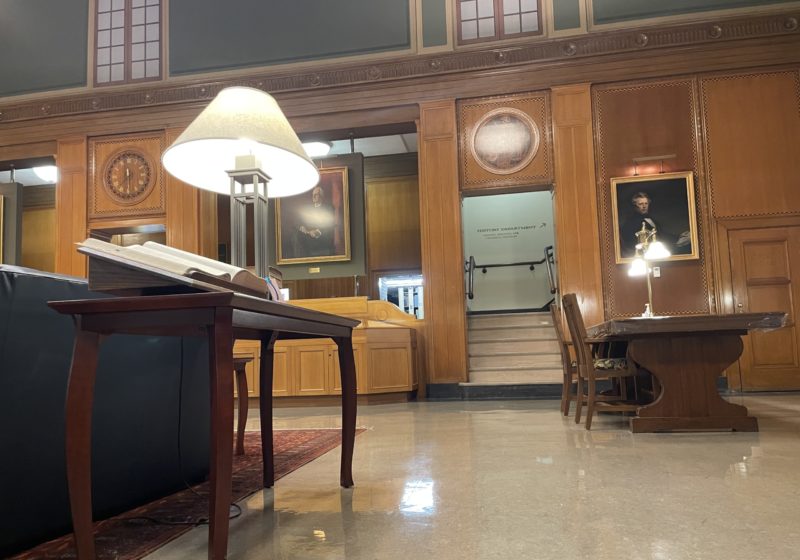Attend enough UR-sponsored events, and you will probably run into a familiar acknowledgment:
“We acknowledge with respect the Seneca Nation, known as the ‘Great Hill People’ and ‘Keepers of the Western Door’ of the Haudenosaunee Confederacy. We take this opportunity to thank the people on whose ancestral lands the University of Rochester currently resides in Rochester, New York.”
That particular wording is from the Burgett Intercultural Center’s website. It kicks off every Students’ Association Senate meeting, and similar acknowledgements are on the websites of the Center for Community Engagement (CCE), Eastman’s admissions office, and the Memorial Art Gallery, to name a few. The University has stated that the land it owns as “seized territory” and that the University and its students’ presence on that land results from a “history of violence and displacement,” as the CCE site reads. Despite these acknowledgements, the University has never offered an official certification or track in Indigenous Studies.
That may be changing. On Oct. 19, an Indigenous Studies cluster was formally approved by the College Curriculum Committee (CCC).
According to the notes of first-year SA Senator Kenneth MacInTyre-Beiter, who attended the CCC meeting, the cluster will require students to complete three four-credit courses from a list of seven classes — five in history and two in anthropology — pertaining to Indigenous peoples. The notes also say that one of these courses will be substitutable for one of five Archaeology, Technology, and Historical Structures classes with Indigenous Studies-related coursework.
According to the cluster proposal form, the seven core courses included in the curriculum are:
- ANTH 205: Theories and Debates: Culture vs. Ontology
- ANTH 232: The Indigenous Peoples Movement
- HIST 150: Colonial Latin America
- HIST 157: History of Native America, 1800 to the Present
- HIST 178 – Beyond Pocahontas: Histories of Indigenous Women, Gender, and Sexuality
- HIST 200 – Gateway Seminar: Native American History
MacInTyre-Beiter’s notes also said the cluster will be limited to the study of groups indigenous to the Americas.
“We asked if we can get Indigenous peoples classes worldwide, but apparently we do not have any faculty members that are knowledgeable enough about that to teach a course on it,” said MacInTyre-Beiter. No new courses or faculty are being brought on for the cluster, he added.







